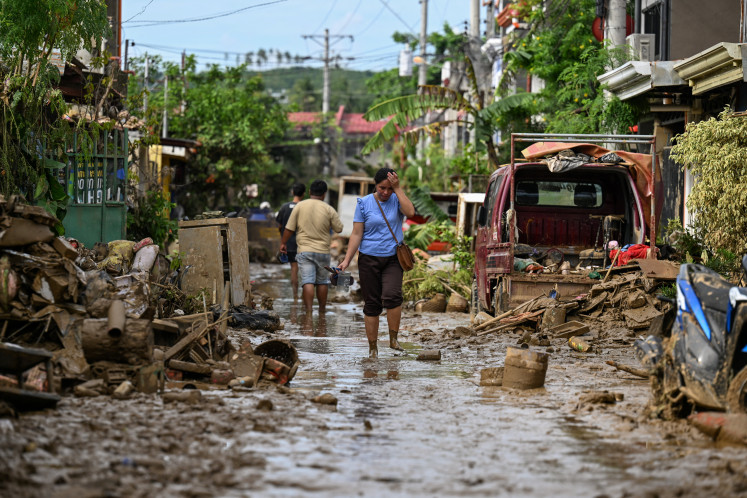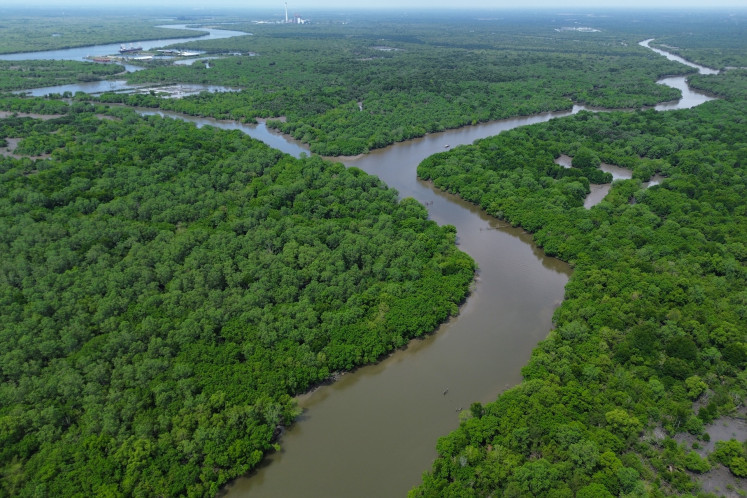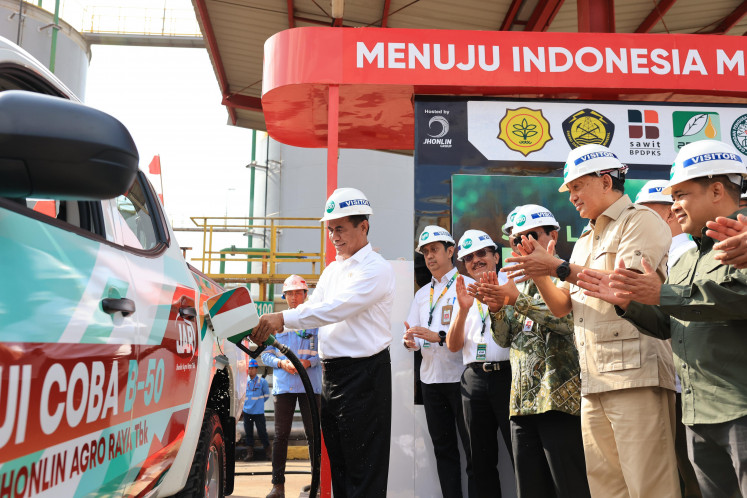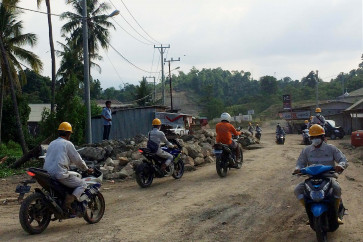Popular Reads
Top Results
Can't find what you're looking for?
View all search resultsPopular Reads
Top Results
Can't find what you're looking for?
View all search resultsAnalysis: RI adamant on upholding downstream policy despite IMF criticism
Change text size
Gift Premium Articles
to Anyone
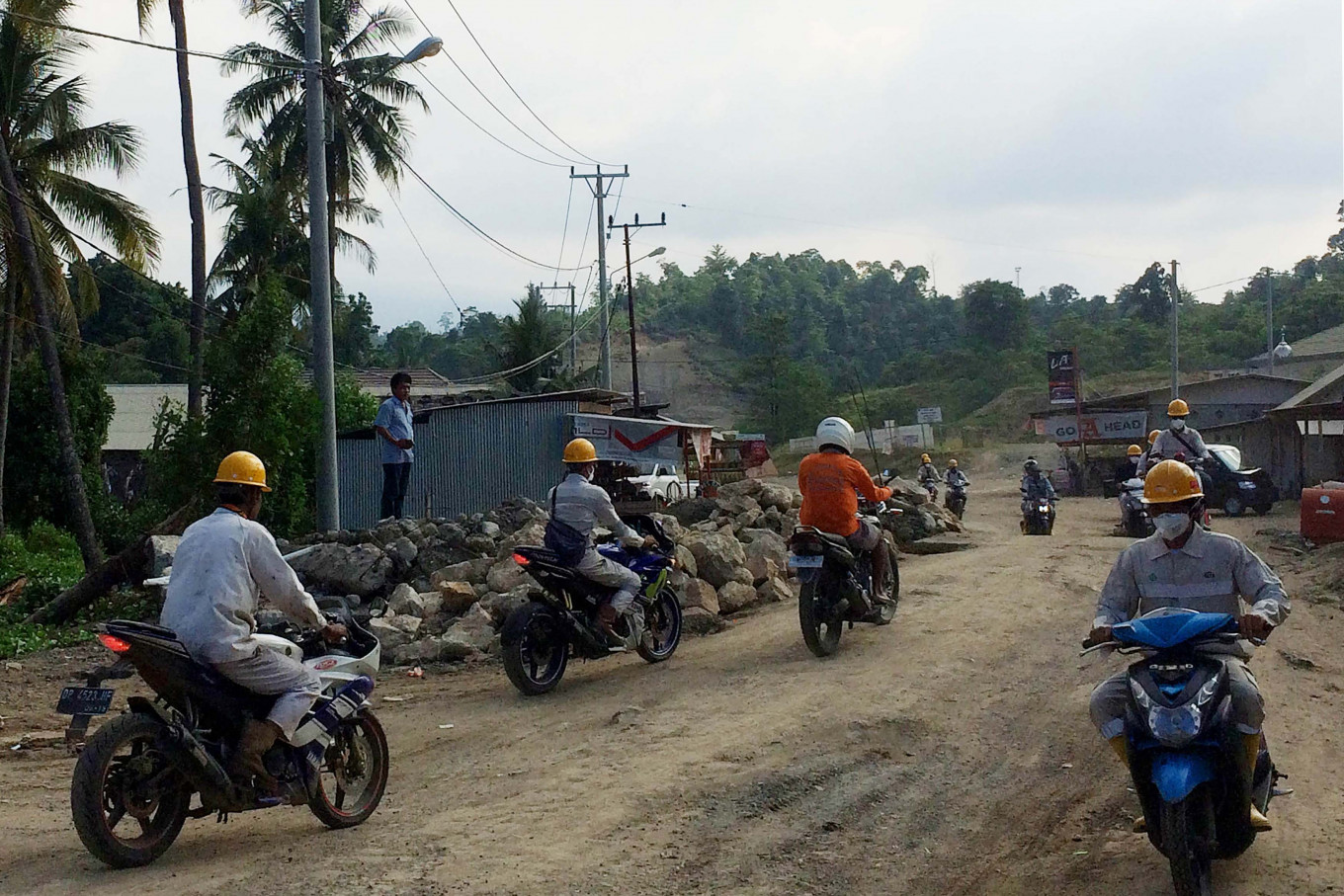 Workers are heading toward or back from the Morowali industrial complex in Bahodopi district, Morowali regency, Central Sulawesi, during a work shift change on around 3 p.m. on Oct. 18. As of October, the industrial estate claimed it had employed more than 15,000 local workers and around 2,500 Chinese workers. (JP/Viriya Paramita)
Workers are heading toward or back from the Morowali industrial complex in Bahodopi district, Morowali regency, Central Sulawesi, during a work shift change on around 3 p.m. on Oct. 18. As of October, the industrial estate claimed it had employed more than 15,000 local workers and around 2,500 Chinese workers. (JP/Viriya Paramita)
I
ndonesian President Joko “Jokowi” Widodo instructed his ministers not to lose focus on establishing the country’s downstream industry in light of a recent recommendation from the International Monetary Fund (IMF) for the country to review its downstream policy and consider a phased elimination of the ban on nickel ore exports.
The Indonesian government sees the downstream industry development policy is non-negotiable, that the country will continue to prioritize developing its downstream industry and prohibit raw mineral commodity exports.
According to the IMF's latest country report on Indonesia (IMF Country Report No.23/221), issued on June 25, 2023, the organization criticized Indonesia's nickel downstream policy for its lack of consideration regarding cost and benefit analysis and the impact of mineral export bans on multilateral trade.
The IMF sees that downstream policies could potentially lead to a loss of government revenue from export taxes as a result of the mineral export bans such as on nickel, bauxite and copper. Furthermore, Indonesia was advised to consider the spill-over effects of downstream policy on commodity prices in the global market, which, according to the IMF, could provoke retaliatory actions from trading partners. Lastly, the IMF suggested that Indonesia phase out export restrictions on nickel and refrain from expanding such restrictions to other commodities.
The IMF’s recommendations undoubtedly provoked a strong reaction from the Indonesian government. In a speech delivered during the Full Cabinet Meeting on Monday (July 3, 2023), President Jokowi reminded his ministers to remain focused on implementing the industrial downstream policy, which is a strategic step for Indonesia to achieve its vision of becoming a developed country by 2045.
In response to the IMF's remarks, Coordinating Maritime Affairs and Investment Minister Luhut Binsar Pandjaitan plans to visit the United States to meet with the managing director of the IMF, Kristalina Georgieva, in order to clarify Indonesia's objectives for no longer exporting nickel ore. This planned visit is seen as an opportunity for Indonesia to engage in constructive dialogue. As a sovereign and developing nation, Indonesia's fundamental goal is to enhance downstreaming processes and add value to its natural resource products. Consequently, Indonesia aims to move beyond being solely a raw material exporter.
The key message to be conveyed during the dialogue is that Indonesia does not seek to unilaterally dominate all downstream activities, but rather aims to foster mutually beneficial global cooperation with other industrialized nations. While the initial stages of downstreaming will take place in Indonesia, subsequent stages could potentially be carried out in other countries.





